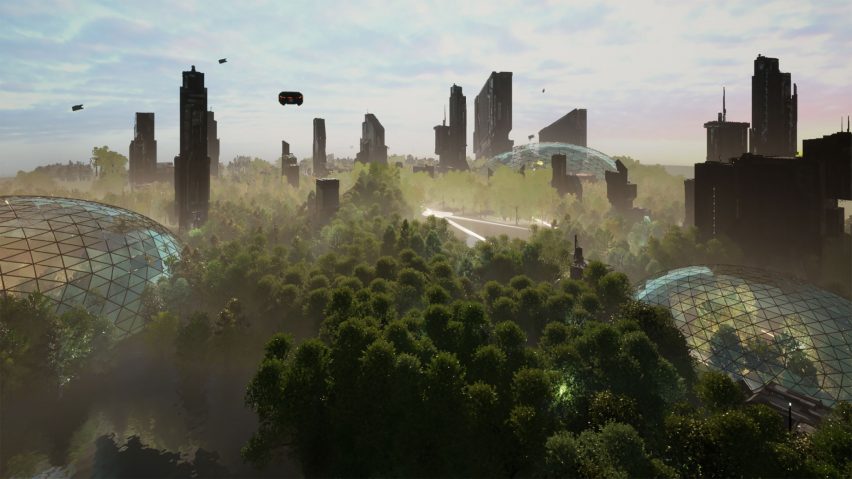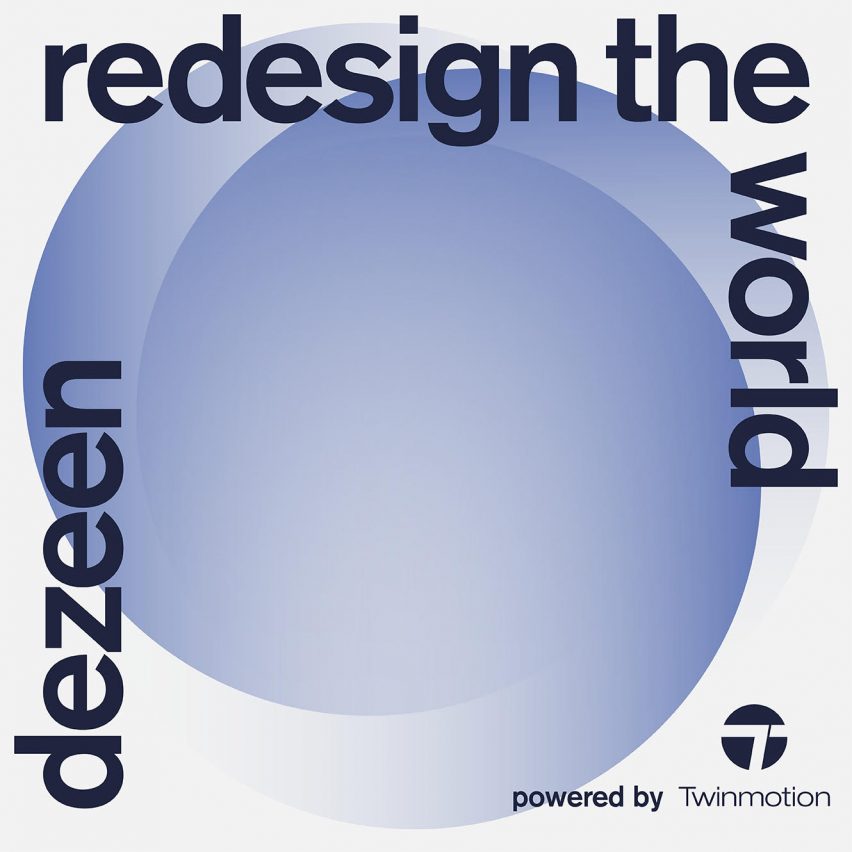Gaetano Fornarelli proposes "moving the countryside to the city" by creating car-free garden cities
The next finalist in Dezeen's Redesign the World competition powered by Twinmotion is Gaetano Fornarelli, who has proposed creating car-free cities covered in trees to improve people's health and reduce humanity's impact on the environment.
Fornarelli's Life in Nature project aims to bring the benefits of the countryside to the city.
Cars would be forbidden, with strict city planning ensuring that all essential services are within walking distance for people. Long-distance travel would occur via a public transport system of small electric vehicles either underground or in the air.
This would allow nature to take over the parts of cities that are usually clogged with traffic.
In Fornarelli's vision, some agriculture would be moved within the cities in the form of large urban farms.
Located inside geodesic domes, the farms would be places of social exchange as well as sites of production, which people would use in a similar way to shopping malls today.
Read more about the proposal below.

Life in Nature
Gaetano Fornarelli
Lecce, Italy
Finalist
"Life in Nature is a proposal for sustainable living. The idea comes from garden cities, enriched with new technological content and today's needs.
"The increase in population and work needs will lead more and more people to move to urban centres, hence the need to move the countryside to the city.
"This development model aims to capture the primary benefits of a countryside environment and an urban environment.
"Agricultural production takes place in part directly in the city, reducing environmental costs and bringing citizens closer to a healthier lifestyle.
"The large urban farms (the geodesic domes) represent a production space but also a place of social exchange, large squares as an alternative to shopping malls.
"The Shanghai Urban Masterplan has defined district-level planning ensuring basic community services. This includes health care services, education, libraries, leisure spaces and recreational facilities for the elderly at a walkable distance in 15 minutes.
"Similarly, in Life in Nature, long-distance travel is reduced to the essential. Cars are forbidden in the city.
"The public transport system is underground, and in the future, it will be implemented by an air taxi system.
"It is possible to move around with small electric vehicles. Buildings are highly technological organisms capable of self-producing energy for the needs of their inhabitants."

Redesign the World
Redesign the World is the ultimate design competition, which called for new ideas to rethink planet Earth to ensure that it remains habitable long into the future.
Launched in partnership with Epic Games, the contest asked entrants to visualise their concepts using architectural visualisation software Twinmotion.
The contest received over 100 entries from more than 30 different countries around the world.
These were assessed by a judging panel comprising White Arkitekter CEO Alexandra Hagen, structural engineer Hanif Kara, speculative architect Liam Young, Twinmotion product marketing manager Belinda Ercan and Dezeen founder and editor-in-chief Marcus Fairs, which selected 15 proposals as finalists to be published on Dezeen.
We are unveiling one finalist a day throughout our Dezeen 15 festival, culminating in the winner being announced on 19 November.
The winner will receive the top prize of £5,000. There are also prizes of £2,500 for second place, £1,000 for third place and £500 each for the remaining finalists.
Find out more about Redesign the World ›
See all the finalists revealed so far ›